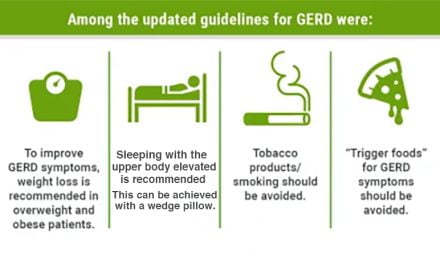Gastroesophageal reflux disease (GERD) is a chronic condition that affects the digestive system. It occurs when the stomach acid and, occasionally, the contents of the stomach flow back into the esophagus, causing a variety of uncomfortable and often debilitating symptoms. While GERD can be managed with proper treatment and lifestyle modifications, it is crucial to understand how the condition can potentially worsen over time. In this article, we will explore the factors that contribute to the escalation of GERD and the importance of early intervention.
Understanding GERD
GERD arises from a malfunctioning lower esophageal sphincter (LES), a muscular ring that acts as a barrier between the stomach and the esophagus. When the LES weakens or relaxes inappropriately, it allows stomach acid to rise, leading to irritation and damage to the delicate lining of the esophagus.
Factors Contributing to the Worsening of GERD
Delayed or Inadequate Treatment: Ignoring the symptoms or failing to seek appropriate medical attention can exacerbate GERD. Untreated or undertreated GERD allows the condition to persist, leading to continued damage to the esophagus and potentially escalating symptoms.
Poor Lifestyle Choices: Certain habits and lifestyle factors can contribute to the worsening of GERD. These include consuming trigger foods (such as spicy or fatty foods), smoking, excessive alcohol consumption, and being overweight or obese. These behaviors can weaken the LES or increase pressure on the abdomen, intensifying reflux symptoms.
Esophageal Damage: Over time, the repetitive exposure of the esophagus to stomach acid can lead to the development of complications. Conditions such as esophagitis (inflammation of the esophagus), esophageal ulcers, strictures (narrowing of the esophagus), and Barrett’s esophagus (changes in the lining of the esophagus) can occur. These complications can further aggravate GERD symptoms and increase the risk of developing more severe conditions like esophageal cancer.
Hiatal Hernia: A hiatal hernia can contribute to the worsening of GERD. This condition occurs when a portion of the stomach protrudes through the diaphragm into the chest cavity. Hiatal hernias can weaken the LES and impair its ability to prevent acid reflux.
Medication Side Effects: Certain medications, such as nonsteroidal anti-inflammatory drugs (NSAIDs), calcium channel blockers, and some antidepressants, can potentially worsen GERD symptoms or trigger acid reflux.
Recognizing the Signs of Worsening GERD
It is essential to be vigilant and identify any changes or escalation in GERD symptoms. Some signs that indicate the condition may be worsening include:
Increased frequency and intensity of heartburn: If heartburn occurs more frequently or becomes more severe, it may suggest worsening GERD.
Difficulty swallowing (dysphagia): The development of swallowing difficulties can be a sign of esophageal damage or the narrowing of the esophagus due to strictures.
Persistent cough: GERD-related cough can worsen and become chronic, leading to persistent throat irritation and coughing.
Regurgitation of food or sour-tasting liquid: An increase in the frequency of regurgitation can indicate a more severe form of GERD.
Sleep disturbances: Worsening GERD can interfere with sleep due to frequent nighttime symptoms, including nighttime heartburn or choking episodes.
The Importance of Early Intervention
While GERD can worsen over time, it is crucial to emphasize that early intervention can make a significant difference in managing the condition and preventing further complications. Seeking medical advice and treatment at the onset of symptoms can help prevent the escalation of GERD and minimize potential damage to the esophagus.
Treatment options for GERD include lifestyle modifications, over-the-counter antacids, H2 blockers, proton pump inhibitors (PPIs), and in some cases, surgical interventions. A healthcare professional can assess the severity of GERD and tailor an appropriate treatment plan to address the individual’s needs.
Conclusion
GERD is a chronic condition that can potentially worsen if left untreated or mismanaged. Understanding the factors that contribute to the escalation of GERD is crucial for individuals to take proactive steps in managing their condition. By seeking early medical intervention, making necessary lifestyle modifications, and adhering to prescribed treatments, individuals can effectively manage GERD and reduce the risk of complications. Awareness and timely action are key to maintaining a good quality of life while managing GERD.



